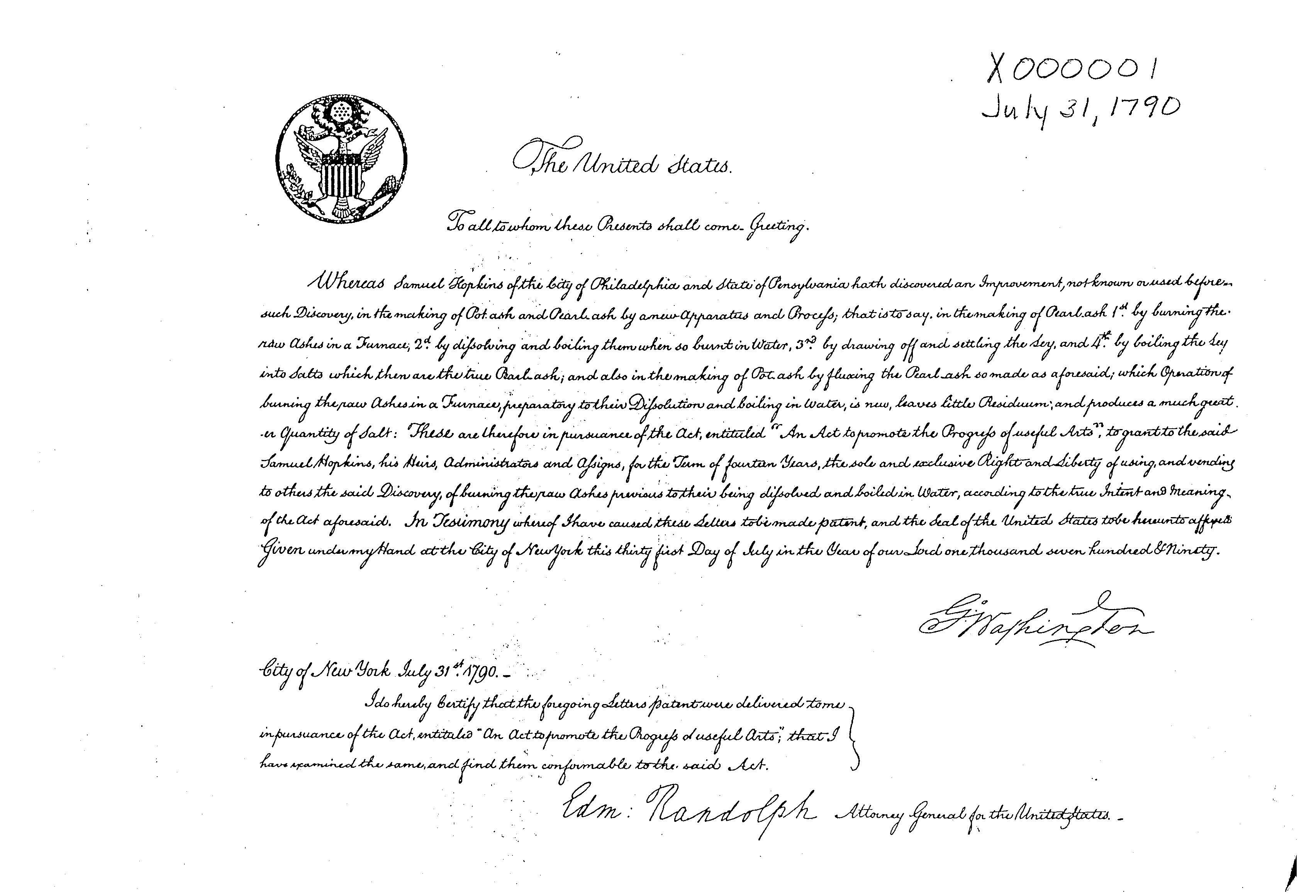Suiter Swantz IP takes a look back at past inventions and inventors with our Patent of the Day.
On this day in 1790, Samuel Hopkins was granted U.S. Patent No. X1 for THE MAKING OF POT ASH AND PEARL ASHES.
Hopkins was a Philadelphia Quaker who later moved to New Jersey. He was living in Philadelphia when the patent was granted. The patent was signed by President Washington, Attorney General Randolph and Secretary of State Jefferson. The original document is in the collections of the Chicago Historical Society.
Potash was America’s first industrial chemical. It is an impure form of potassium carbonate mixed with other potassium salts. Until the 1860s it was solely derived from the ashes of hardwood trees and certain other plants. Potash was a leading industrial alkali from antiquity until the close of the nineteenth century, when it was finally abandoned for most uses in favor of soda (sodium carbonate). It was essential for making soap and glass, dyeing fabrics, baking, and making saltpeter for gunpowder. Today it is principal ingredient in fertilizers.
Hopkins also received two other patents for preparation of flour of mustard. During the fourteen year term of the first patent, potash sold at two hundred to three hundred dollars a ton, and over this period more than 90,000 tons, worth at least twenty million dollars, were exported from the United States. The United States remained the world’s leading producer of potash until the 1860s. At that time, potash began to be mined from rich natural deposits in Germany.
Suiter Swantz IP is a full-service intellectual property law firm, based in Omaha, NE, serving all of Nebraska, Iowa and South Dakota. If you have any intellectual property questions or need assistance with any patent, trademark or copyright matters and would like to speak to one of our patent attorneys please feel free to contact us.
